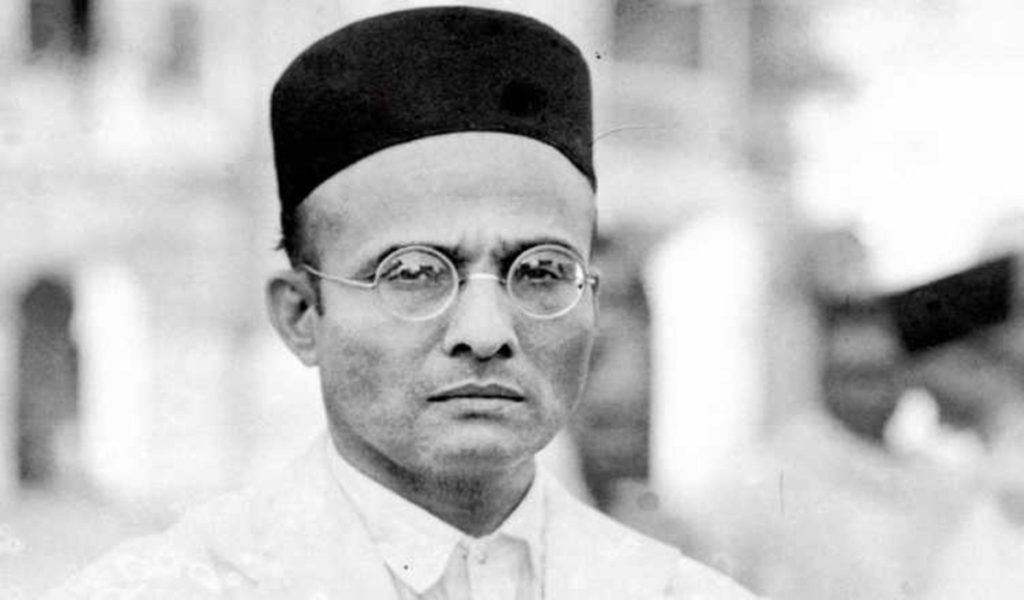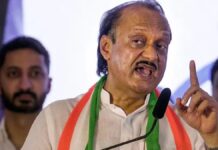@RavikiranRKD
Mumbai: The clamour over the recent statement by Chief Minister Uddhav Thackeray on Babri demolition may not die down so soon. Voices of dissent from the Congress camp are resonating and leaders are fuming over Thackeray’s statement which, in different words portrayed as an ‘attempt to expose’ Bharatiya Janata Party (BJP) for its role during the demolition. More or less, the state political scene may revolve around it with efforts by Shiv Sena and BJP to prove their credentials as the pro-Hindu parties.
Before analysing the statement made by Thackeray while replying to a debate on the motion of thanking the Governor for his address at the State Legislature, it’s easy to assume that the BJP is trying to extract maximum from Shiv Sena’s decision to snap ties with them to join hands with NCP and Congress.

From day one ever since the Shiv Sena-led Maha Vikas Aghadi (MVA) government came to power, BJP has been trying to harp on Sena’s decision, as a betrayal towards the cause of Hindutva. Sena has aligned with the parties that do not subscribe to the idea of hard-core Hinduism.

In his speech, Thackeray lambasted the BJP recalling how his father late Balasaheb Thackeray took credit for the Babri demolition by saying if the mosque was demolished by his Shiv Sainiks, he was proud of them.
He further said Shiv Sena’s Hindutva was not limited with following some hardcore religious practices. Why BJP-led Union Government was not taking a decision to announce Bharat Ratna for late V. D. Savarkar when the state government has written two letters, he asked.

While this embarrassed BJP leadership, Congress and few other parties such as Samajwadi Party became upset. The speech by Thackeray was more of a Shiv Sena party chief than as the head of the state government, was the terse reaction came from the BJP camp.
Also Read: Why is Sanjay Rathod so indispensable for the Shiv Sena
The Congress camp is a bit worried as the statement hurts its secular credentials and Samajwadi Party was quick to extract political mileage keeping the politics of Uttar Pradesh in mind. The Muslim ministers from the Maha Vikas Aghadi government should resign immediately, demanded Abu Aseem Azmi, MLA, and leader of Samajwadi Party. Sanjay Nirupam, former president of the Mumbai Congress embarrassed further chiding his party leaders for keeping mum when the statement was made.

Certainly, more than the embarrassment, the BJP state camp could have been happier with the fact that the statement has created a clear divide in the three-party government. Congress’s alienation with Shiv Sena sooner than possible can result in the early fall of the government, feels the BJP whose leaders are banking on this sole agenda. Because, even after more than a year, BJP has not been able to emerge as a credible force as a strong Opposition by raising issues of public interest.
Its attempt to put the government on the mat has been marred with the counter-attacks by ruling coalition members over growing inflation, unemployment, and rise in prices of the petroleum products along with sensational Sushant Singh suicide case and controversies related with Republic TV and its head Arnab Goswami.
Even attempts were made to expose the government to the fight against COVID 19 but have not yielded expected results as yet. In short, BJP has not succeeded in creating the anti-government atmosphere to generate public sympathy in favour of the party. Even the tense atmosphere over reservation to the Maratha community is not similar to the one faced by BJP while in power. Now the ruling coalition has demanded intervention by the Union government to resolve the matter pending before the Supreme Court.

History says BJP or the organisations backing it may have been the torchbearers of Hindutva in the country but excluding the state of Maharashtra thanks to the leadership provided by late Shiv Sena chief Bal Thackeray. Due to his image as a hardcore Hindutva leader, BJP has always remained in position number two in Maharashtra. The fact was accepted by BJP’s late senior leader Pramod Mahajan when he sensed the political mood of the state during the late 80s.
It was after the Shiv Sena candidate Ramesh Prabhu trounced Congress-backed candidate in Vile Parle bye-election solely on the agenda of aggressive Hindutva and a massive win in the elections to Aurangabad Municipal Corporation that Pramod Mahajan decided to join hands with Thackeray senior.

BJP could not gain an upper hand during the lifetime of late Thackeray and always remained as an ally to Shiv Sena. It was only after the rise of Narendra Modi as the champion of Hindutva in 2013-14 that led to the change of mood in the BJP camp. The decision to fight State Assembly polls in 2014 all alone was a calculated move to remove the shackles of a junior partner to make BJP an independent force to ride the wave of Hindutva. But the failure to secure majority in the assembly elections forced the BJP to mend its ways and seek Sena’s support to run the government between 2014 to 2019.
Every attempt was made to pressurize Sena to toe the BJP’s line of Hindutva under Narendra Modi. But Sena did not mend its ways and made every effort to keep its distinct identity as an aggressive force for the cause of Hindutva. In this league, Uddhav Thackeray’s statements such as “Mandir wahi banayenge magar tareekh nahi batayenge” attacking BJP, and his much talked about visit to Ayodhya were considered as very calculated political moves.
It becomes clear that when it comes to politics, Thackeray will not compromise on his party’s aggressive stand on Hindutva. And the limitations faced by BJP to counter its former ally are also clearly visible.
The fight will continue till the next general elections. Even though it is said that politics is the art of the possible, the statements by Thackeray have made it clear that he may not go for an alliance with BJP in the near future at least. Sensing it, BJP has decided to fight for the continuation of Statutory Development Boards for Vidarbha and Marathwada. Besides, BJP is also raising the issue of electing the new Speaker in the State Assembly terming it as a collapse of the Constitutional provisions.




clomid for men can i order generic clomiphene online can i purchase cheap clomiphene for sale order clomid pills get clomiphene without rx buy cheap clomiphene no prescription where can i get generic clomid tablets
More content pieces like this would insinuate the web better.
azithromycin ca – order ciprofloxacin 500mg generic order flagyl for sale
semaglutide 14 mg brand – periactin price cyproheptadine 4 mg uk
Cncbet Adalah Bandar Judi Bola Terlengkap & Terpercaya #1 Di Indonesia
buy domperidone 10mg pill – how to get sumycin without a prescription buy cyclobenzaprine online
coumadin 5mg oral – https://coumamide.com/ order cozaar 50mg pills
cost deltasone 5mg – allergic reactions deltasone 20mg price
buying ed pills online – ed remedies online ed pills
order cenforce 50mg generic – cenforce 50mg tablet cenforce 100mg uk
cialis black 800 to buy in the uk one pill – cialis best price is there a generic cialis available in the us
what is the use of tadalafil tablets – https://strongtadafl.com/# generic cialis online pharmacy
The thoroughness in this break down is noteworthy. que es mejor lyrica o neurontin
buy viagra in new zealand – https://strongvpls.com/ sildenafil oral jelly 100mg
Greetings! Utter productive advice within this article! It’s the little changes which liking turn the largest changes. Thanks a lot for sharing! https://buyfastonl.com/amoxicillin.html
Good blog you have here.. It’s hard to on strong calibre script like yours these days. I honestly appreciate individuals like you! Rent mindfulness!! https://ursxdol.com/furosemide-diuretic/
This website absolutely has all of the tidings and facts I needed adjacent to this participant and didn’t identify who to ask. https://prohnrg.com/product/metoprolol-25-mg-tablets/
I’ll certainly carry back to review more. https://ondactone.com/product/domperidone/
The thoroughness in this section is noteworthy.
https://doxycyclinege.com/pro/topiramate/
Thanks on putting this up. It’s well done. http://bbs.51pinzhi.cn/home.php?mod=space&uid=7059342
buy forxiga 10mg generic – https://janozin.com/ order dapagliflozin 10 mg online cheap
orlistat generic – buy orlistat no prescription xenical 60mg us
The thoroughness in this section is noteworthy. http://shiftdelete.10tl.net/member.php?action=profile&uid=205574
The thoroughness in this draft is noteworthy.
online casinos ohio
best casino slots bingo poker
best online casinos for real money
mgmbets betmgm AR mgm sportsbook
mcluck Illinois online casino McLuck mcluck casino login
Feel the taste of victory with your first bets. crown coins login offers a mobile version for convenience. Join the community of lucky players.
Prairie thunder roars with every reel turn. aristocrat buffalo slot offers sunset magic, bonus buffs, and massive cash herds. Join now!